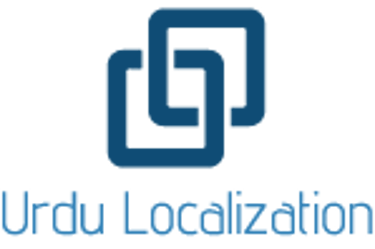
Why Human Urdu Translators Still Matter in the Age of AI
3 min read

The rise of AI has transformed how businesses approach translation. Machine tools promise speed, scalability, and cost savings, but when it comes to Urdu translation services, relying solely on technology often results in errors, awkward phrasing, and a lack of cultural depth. Professional Urdu translators remain indispensable for businesses that want to communicate accurately, effectively, and respectfully with Urdu-speaking audiences. Human expertise ensures that every word, phrase, and nuance aligns with the intended meaning, tone, and context.
AI may generate literal translations quickly, but it cannot grasp the subtleties of language. A human Urdu translator understands idioms, tone, and context in ways machines cannot replicate. From legal contracts to marketing content, medical instructions to technical manuals, effective translation requires more than substituting words; it demands comprehension of intent and meaning. Certified Urdu translation services, for instance, provide accuracy that is critical for legal, governmental, and healthcare documents, where a misinterpretation could lead to serious consequences. For businesses, human translation safeguards against miscommunication and protects professional credibility.
Even when machine translation is used as a starting point, human editing and proofreading remain essential. Urdu post-translation editing and Urdu proofreading services refine the final text, ensuring it is polished, culturally appropriate, and error-free. Professional translators and editors can identify where AI-generated content fails to capture tone, idiomatic usage, or technical accuracy. In financial statements, product manuals, or medical instructions, a single mistranslation can create confusion, damage trust, or even pose risks to safety. Human oversight guarantees that content maintains the highest standard of clarity and reliability, reinforcing a brand’s professionalism.
Localization is another area where human expertise outshines AI. True Urdu content localization requires adapting language, phrasing, and even visual elements to reflect cultural norms and preferences. A human translator ensures that websites, mobile apps, product descriptions, and marketing materials feel native rather than generic. For example, an e-commerce platform that localizes product information, payment options, and support content into culturally relevant Urdu immediately establishes trust with limited English-speaking customers. By understanding cultural references, formalities, and regional variations, human translators create experiences that AI alone cannot replicate.
Different industries present unique challenges that demand specialized knowledge. Legal Urdu translation requires mastery of terminology and an understanding of legal implications; medical Urdu translation demands precision to ensure patient safety and regulatory compliance; technical Urdu content relies on consistent, accurate terminology for manuals and instructions. AI tools often misinterpret context or fail to capture specialized terms correctly. Human translators bring the expertise necessary to deliver accurate, reliable, and contextually appropriate content for every sector, which strengthens brand credibility and prevents costly mistakes.
Confidentiality and trust are additional reasons human translators remain essential. Sensitive information in legal, financial, healthcare, or government documents cannot risk exposure to AI platforms that may store or process data externally. Confidential Urdu translation services guarantee the security of personal, financial, and legal information. Professional translators adhere to strict standards, offering businesses peace of mind that their content remains private. This level of trust and responsibility cannot be matched by automated systems, reinforcing why human translators continue to play a critical role in professional communication.
Beyond accuracy and confidentiality, human translators contribute to overall user experience and engagement. In marketing, education, customer support, and e-learning, Urdu content must resonate culturally, linguistically, and emotionally. Human translators choose the right words, phrases, and tone to engage audiences naturally. By considering regional differences, formal or conversational styles, and local idioms, they ensure that communication feels personal and credible. Machine translations often fail to convey these subtleties, leaving content flat or awkward. Human translation, by contrast, enhances readability, comprehension, and connection with the target audience.
Even in an era where speed is valued, quality and trust matter more. Companies that balance efficiency with human oversight gain a competitive advantage. Combining AI tools with human Urdu translation services allows businesses to scale content while maintaining accuracy, cultural relevance, and professionalism. Whether for website localization, marketing campaigns, or critical documents, human translators ensure that every piece of content reflects care, precision, and expertise.
Investing in professional Urdu translators is an investment in reputation, trust, and user engagement. It ensures that businesses communicate authentically, avoiding misunderstandings and fostering long-term relationships with Urdu-speaking customers. Human translators deliver content that is not only accurate but also culturally sensitive, contextually relevant, and fully aligned with the brand’s voice. This approach strengthens customer loyalty, encourages engagement, and sets companies apart in competitive markets.
In a world increasingly dominated by automated translation, the human touch remains irreplaceable. Human Urdu translation services combine linguistic expertise, cultural knowledge, and industry-specific understanding to deliver content that machines alone cannot achieve. Businesses that prioritize human translation and localization demonstrate commitment to quality, professionalism, and audience respect. By investing in skilled human translators, companies ensure that their communication is clear, trustworthy, and impactful—building stronger connections with Urdu-speaking audiences and securing long-term growth.
